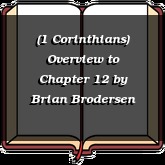"And these are the singers ... they were employed in that work day and night."
—1 Chronicles 9:33
Evening Thought
Well was it so ordered in the temple that the sacred chant never ceased: for evermore did the singers praise the Lord, whose mercy endureth for ever. As mercy did not cease to rule either by day or by night, so neither did music hush its holy ministry. My heart, there is a lesson sweetly taught to thee in the ceaseless song of Zion's temple, thou too art a constant debtor, and see thou to it that thy gratitude, like charity, never faileth. God's praise is constant in heaven, which is to be thy final dwelling-place, learn thou to practise the eternal hallelujah. Around the earth as the sun scatters his light, his beams awaken grateful believers to tune their morning hymn, so that by the priesthood of the saints perpetual praise is kept up at all hours, they swathe our globe in a mantle of thanksgiving, and girdle it with a golden belt of song.
The Lord always deserves to be praised for what he is in himself, for his works of creation and providence, for his goodness towards his creatures, and especially for the transcendent act of redemption, and all the marvellous blessing flowing therefrom. It is always beneficial to praise the Lord; it cheers the day and brightens the night; it lightens toil and softens sorrow; and over earthly gladness it sheds a sanctifying radiance which makes it less liable to blind us with its glare. Have we not something to sing about at this moment? Can we not weave a song out of our present joys, or our past deliverances, or our future hopes? Earth yields her summer fruits: the hay is housed, the golden grain invites the sickle, and the sun tarrying long to shine upon a fruitful earth, shortens the interval of shade that we may lengthen the hours of devout worship. By the love of Jesus, let us be stirred up to close the day with a psalm of sanctified gladness.
Ⓒ 1996-2017 Heartlight, Inc. This material may not be reproduced in part or whole for commercial use without written consent. Written by Charles H. Spurgeon.
 View the full article
View the full article
—1 Chronicles 9:33
Evening Thought
Well was it so ordered in the temple that the sacred chant never ceased: for evermore did the singers praise the Lord, whose mercy endureth for ever. As mercy did not cease to rule either by day or by night, so neither did music hush its holy ministry. My heart, there is a lesson sweetly taught to thee in the ceaseless song of Zion's temple, thou too art a constant debtor, and see thou to it that thy gratitude, like charity, never faileth. God's praise is constant in heaven, which is to be thy final dwelling-place, learn thou to practise the eternal hallelujah. Around the earth as the sun scatters his light, his beams awaken grateful believers to tune their morning hymn, so that by the priesthood of the saints perpetual praise is kept up at all hours, they swathe our globe in a mantle of thanksgiving, and girdle it with a golden belt of song.
The Lord always deserves to be praised for what he is in himself, for his works of creation and providence, for his goodness towards his creatures, and especially for the transcendent act of redemption, and all the marvellous blessing flowing therefrom. It is always beneficial to praise the Lord; it cheers the day and brightens the night; it lightens toil and softens sorrow; and over earthly gladness it sheds a sanctifying radiance which makes it less liable to blind us with its glare. Have we not something to sing about at this moment? Can we not weave a song out of our present joys, or our past deliverances, or our future hopes? Earth yields her summer fruits: the hay is housed, the golden grain invites the sickle, and the sun tarrying long to shine upon a fruitful earth, shortens the interval of shade that we may lengthen the hours of devout worship. By the love of Jesus, let us be stirred up to close the day with a psalm of sanctified gladness.
Ⓒ 1996-2017 Heartlight, Inc. This material may not be reproduced in part or whole for commercial use without written consent. Written by Charles H. Spurgeon.

 Dear Lodseth, we're lifting up your financial need to the Lord. Remember, Jesus said, "Ask and it will be given to you" (Matt 7:7). Trust God's timing. We're agreeing with you in prayer!
Dear Lodseth, we're lifting up your financial need to the Lord. Remember, Jesus said, "Ask and it will be given to you" (Matt 7:7). Trust God's timing. We're agreeing with you in prayer! 

 **Prayer Updates!**
**Prayer Updates!** 
 **Trust & Faith**:
**Trust & Faith**: 
 Join in prayer & support! Let's lift each other up in Jesus' Name! holds
Join in prayer & support! Let's lift each other up in Jesus' Name! holds

